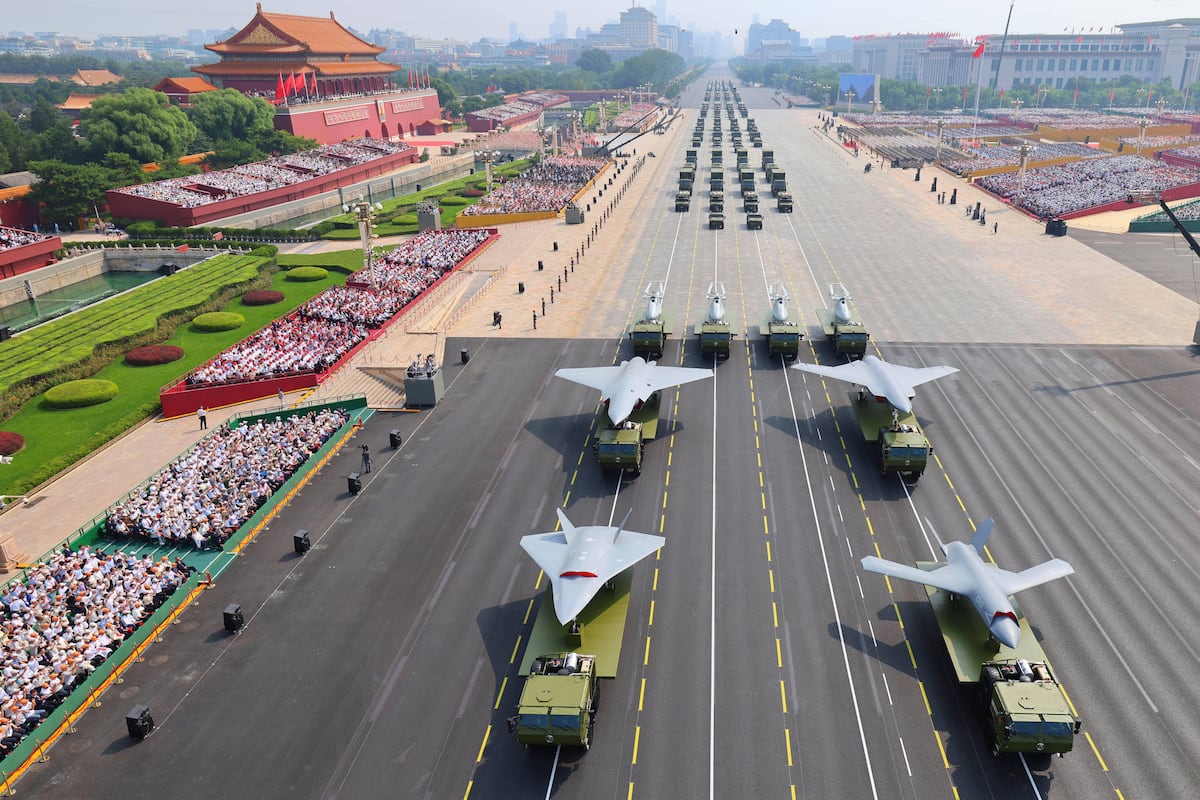SecDef Hegseth’s Strong Stance on the Panama Canal: A Message Against Chinese Influence
On Tuesday, U.S. Secretary of Defense Pete Hegseth made headlines during his visit to Panama City as he boldly articulated America’s commitment to countering Chinese influence over the Panama Canal. His remarks, reported by Reuters, appeared to be a calculated blend of tough rhetoric aimed at reassuring both the Panamanian government and its citizens, who may have been unsettled by prior threats made by former President Donald Trump regarding the canal.
Hegseth stated emphatically, “China did not build this canal. China does not operate this canal and China will not weaponize this canal. Together with Panama in the lead, we will keep the canal secure and available for all nations.” These words resonate deeply, especially given the canal’s historical significance and its role as a pivotal global trade route. His assertive message signals a renewed U.S. policy to bolster Panamanian sovereignty while countering the increased Chinese influence in the region.
A Shift in Panamanian Foreign Policy
In a noteworthy development, Secretary Hegseth welcomed President Mulino of Panama’s bold decision to make the country the first in the Western Hemisphere to exit China’s Belt and Road Initiative. This initiative has been viewed with skepticism by many countries due to fears of economic dependency and loss of sovereignty. Hegseth complimented Mulino’s efforts to reduce China’s presence, which aligns with a broader strategy to secure U.S. interests in Latin America.
The Pentagon has highlighted ongoing military collaborations between Panama and the U.S., including training exercises aimed at emphasizing “Canal defense in Panama,” scheduled for 2026. These initiatives are designed not only to enhance the capabilities of the Panamanian military but also to assert a form of U.S. presence that could deter external attempts to undermine the canal’s security.
Challenges in U.S.-Panamanian Relations
Despite the strong words from U.S. officials, experts caution that anti-China rhetoric has not always translated into a winning strategy for the United States in Panama. Ryan Berg from the Center for Strategic and International Studies pointed out the complexities involved in public diplomacy in the region. The challenge lies in balancing a tough stance against China while ensuring that Panamanians feel secure and supported, especially after Trump’s provocative statements on reclaiming control over the canal.
The Call for Space Capability
Beyond addressing the Panama Canal, the landscape of U.S. military strategy includes a significant pivot towards space. General Stephen Whiting, head of U.S. Space Command, has underscored the necessity for “space fires,” asserting that “we need weapons in space” to deter potential conflicts that may arise in the orbital realm. This is a notable shift from traditional U.S. positions that have often shied away from discussing the militarization of space due to fears of igniting an arms race and obligations under the 1967 Outer Space Treaty.
The push for enhanced capabilities in space refocuses U.S. military priorities in a domain that is increasingly contested, especially with the rise of adversarial powers implementing space-based strategies.
Moving Troops and Resources: A Tactical Adjustment
In tandem with these strategic shifts, discussions regarding U.S. troop presence in Europe are also evolving. General Chris Cavoli, commander of U.S. European Command, has cautioned against withdrawing troops from Eastern Europe, highlighting that such a move would diminish the U.S. and NATO’s responsiveness to Russian aggression. This sentiment calls into question the implications of U.S. force posture as conflicts emerge across different theaters of operation.
The military landscape is further complicated by recent decisions to downsize U.S. military nodes supporting Ukraine, as logistics hubs adapt to changing needs amid ongoing support for the Ukrainian defense against Russian incursions.
International Implications of Concealed Forces
As discussions about military strategies evolve, there are implications that resonate beyond U.S. borders. Reports indicate that China may have a more significant presence within Russian forces than previously acknowledged, as Ukrainian President Volodymyr Zelenskyy claimed that Ukrainian forces captured Chinese nationals fighting alongside Russia. This unfolding situation could strain U.S.-China relations even further while increasing surveillance needs on foreign military movements.
Global Defense Collaboration in Training Initiatives
Another development is Japan’s desire to join NATO’s Ukraine-focused training mission, a move that underscores the growing international collaboration against common threats, particularly as both Russia and China build their military capabilities. The potential involvement of Japan as a non-NATO ally in training initiatives signals a collective acknowledgment of shared security concerns in light of rising challenges in the region.
Economic Concerns amid Military Expansion
Amid these developments, questions arise regarding the sustainability of proposed military budgets and the implications for domestic spending. Former President Trump, who had initially expressed reluctance toward vast military spending, is now championing a historically large defense budget exceeding $1 trillion, raising eyebrows about the motivations behind this budgetary shift and its ramifications.
These evolving geopolitical dynamics and domestic considerations showcase the intricacies of maintaining national security in an increasingly multifaceted global environment. The conversations surrounding the Panama Canal, military positioning in space, and international alliances underscore a period of significant change in U.S. defense strategy as officials wrestle with both historical legacy and impending challenges ahead.





